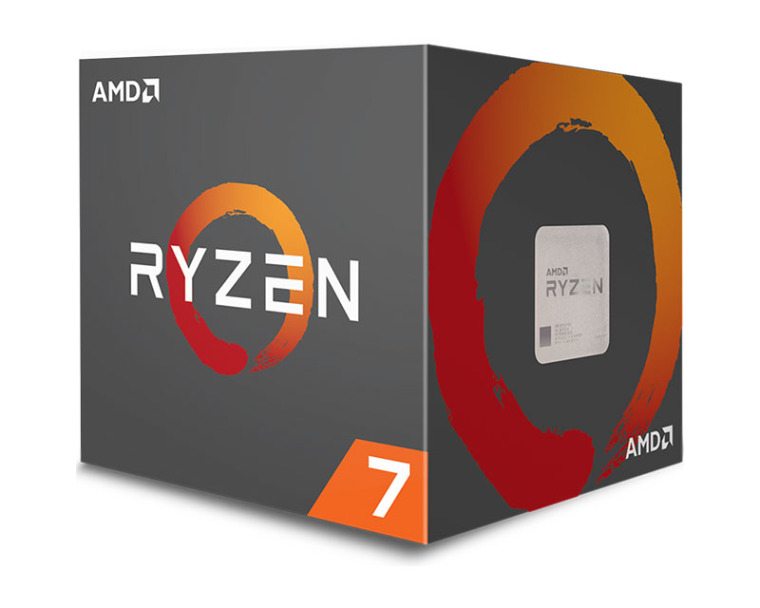AMD Ryzen review: New processor line provides more power at a lower cost

Intel is the brand that comes to mind for most people when asked about processors for PCs. The introduction of the AMD Ryzen, however, can very well change that.
Ryzen does not refer to a single processor, but rather a range, and comprised of five models: Ryzen 7 1800x, Ryzen 7 1700x, Ryzen 7 1700, Ryzen 5 1600x, Ryzen 5 1500x. As pointed out by PC Advisor, the naming scheme of these chips are intended to coincide with Intel's, thereby making it easier to compare the specifications of both brands. These processors will be available not just for desktop PCs, but also for laptops and servers.
The eight-core 16-thread Ryzen processors were built with the careful blending of power and efficiency in mind. The SenseMI technology and the 14nm FinFET manufacturing process each chip comes bundled with allows the processor to use only as much power as needed in order to run the system effectively. This means that it does not waste power, without any latency or queue drain. The Ryzen processor is said to consume 95 watts only, making it a power-efficient chip.
The SenseMI technology is also packaged as a smart system, which learns from the player's software usage and predicts what data or resources will need to be allocated in advance. These technologies allow the Ryzen processors to do a lot more work per clock cycle, improving by as high as 40 percent compared to the previous processors it released. The chips also support DDR4 memory, which can potentially mean a much faster system.
Admittedly, the AMD Ryzen processors were not quite able to reach the speed of the Intel variants these were pitted against each other in a test, at least for gaming. However, what the former have that the latter do not is affordability. The most expensive item in the product line, Ryzen R7 1800x, is priced at less than $500, making this a good option for users who want a fast processor but are careful about their budget.
The AMD Ryzen processors were launched on March 2.
 Christians don't have to affirm transgenderism, but they can’t express that view at work: tribunal
Christians don't have to affirm transgenderism, but they can’t express that view at work: tribunal Archaeology discovery: Medieval Christian prayer beads found on Holy Island
Archaeology discovery: Medieval Christian prayer beads found on Holy Island Presbyterian Church in America votes to leave National Association of Evangelicals
Presbyterian Church in America votes to leave National Association of Evangelicals Over 50 killed in 'vile and satanic' attack at Nigerian church on Pentecost Sunday
Over 50 killed in 'vile and satanic' attack at Nigerian church on Pentecost Sunday Ukrainian Orthodox Church severs ties with Moscow over Patriarch Kirill's support for Putin's war
Ukrainian Orthodox Church severs ties with Moscow over Patriarch Kirill's support for Putin's war Islamic State kills 20 Nigerian Christians as revenge for US airstrike
Islamic State kills 20 Nigerian Christians as revenge for US airstrike Man who served 33 years in prison for murder leads inmates to Christ
Man who served 33 years in prison for murder leads inmates to Christ


 Nigerian student beaten to death, body burned over ‘blasphemous’ WhatsApp message
Nigerian student beaten to death, body burned over ‘blasphemous’ WhatsApp message 'A new low': World reacts after Hong Kong arrests 90-year-old Cardinal Joseph Zen
'A new low': World reacts after Hong Kong arrests 90-year-old Cardinal Joseph Zen Iran sentences Christian man to 10 years in prison for hosting house church worship gathering
Iran sentences Christian man to 10 years in prison for hosting house church worship gathering French Guyana: Pastor shot dead, church set on fire after meeting delegation of Evangelicals
French Guyana: Pastor shot dead, church set on fire after meeting delegation of Evangelicals ‘Talking Jesus’ report finds only 6% of UK adults identify as practicing Christians
‘Talking Jesus’ report finds only 6% of UK adults identify as practicing Christians Mission Eurasia ministry center blown up in Ukraine, hundreds of Bibles destroyed: 'God will provide'
Mission Eurasia ministry center blown up in Ukraine, hundreds of Bibles destroyed: 'God will provide' Church holds service for first time after ISIS desecrated it 8 years ago
Church holds service for first time after ISIS desecrated it 8 years ago Burger King apologizes for 'offensive campaign' using Jesus' words at the Last Supper
Burger King apologizes for 'offensive campaign' using Jesus' words at the Last Supper Uganda: Muslims abduct teacher, burn him inside mosque for praying in Christ’s name
Uganda: Muslims abduct teacher, burn him inside mosque for praying in Christ’s name